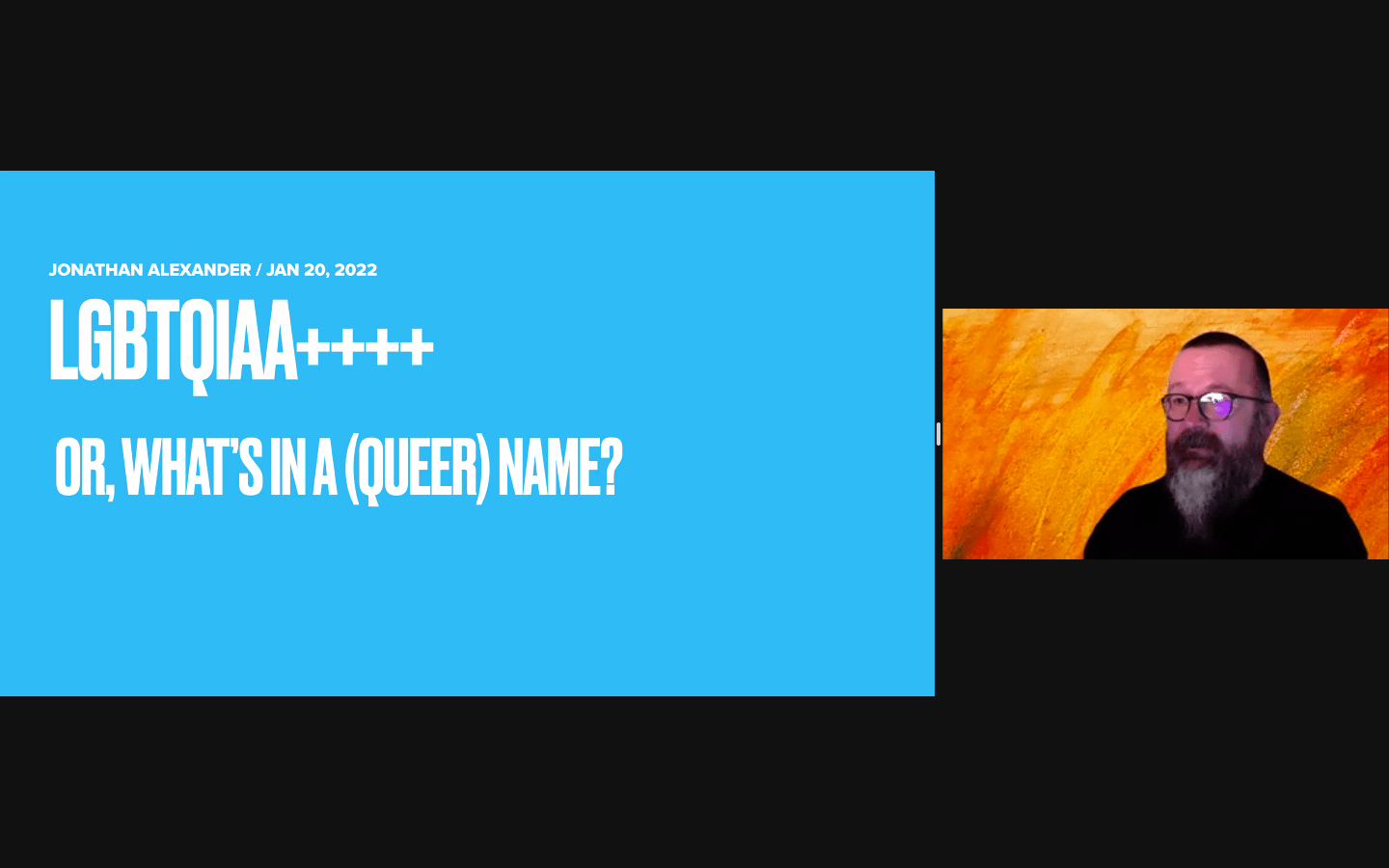The UCI Center for Excellence in Writing & Communication held its first “Politics of Language” presentation of the year, featuring guest speaker Dr. Jonathan Alexander, Chancellor’s Professor of English and Informatics and Associate Dean in the Division of Undergraduate Education, on Jan. 20.
In his talk, Alexander considered how the four separate editions of his textbook, “Finding Out: An Introduction to LGBTQ Studies,” have changed over time to reflect evolving conventions within the LGBTQIA+ community. He also discussed the evolving politics of naming in queer communities.
Alexander began by discussing how his textbook has changed over time. “Finding Out” was first published in 2009 with the subtitle “an introduction to LGBT studies”; in the third edition of the textbook, published in 2017, the subtitle was updated to “an introduction to LGBTQ studies.”
“It was only at that point that we felt the word ‘queer’ had assumed enough familiarity and was no longer a pejorative term,” Alexander said. “I realized that writing this textbook … has been a project about the politics of language, about the relationship between how we talk and how we name queer experiences.”
Alexander examined other frameworks that have guided work on the textbook, such as the avoidance of “perverse presentism,” or equating the significance of ancient practices with that of contemporary ones.
“These [practices] might look like contemporary queerness from a contemporary perspective,” Alexander said. “But it is particular to its time and might not be analogous to contemporary issues.”
Alexander also discussed important figures in LGBTQIA+ history, such as Richard von Krafft-Ebing, Havelock Ellis, Karl Heinrich-Ulrichs, Edward Carpenter and Karl-Maria Kertbeny.
Next, Alexander shifted to discuss the 2017 edition of his textbook, in which he addressed issues such as the solidification of some rights such as marriage for LGBT people around the globe, the resurgence of global fascism, attacks on trans rights but also increased trans visibility, and increasing attention paid to anti-Blackness and violence against Black people.
“We needed to highlight queer and trans voices of color,” Alexander said.
He spoke about modern evolutions of language in LGBTQIA+ communities.
“One of the things I love about the adoption of ‘they’ as a singular pronoun by non-binary people is that it increasingly prompts younger generations to introduce themselves by their pronouns,” Alexander said. “Just the act of introducing yourself with a set of pronouns … is signaling to larger groups a recognition [of] and comfort with gender diversity.”
Alexander opened the discussion for questions and was asked who is given permission to name or classify people, and who gets to decide whether terms are acceptable.
“The early sexologists created vocabularies that were used to pathologize, but they also created terms that people could then use to recast how they understood themselves,” Alexander said. “The problem is, I don’t know that we can pinpoint who has the right. I think we can pinpoint the moments in which individuals are more and more sensitized to honoring and respecting the ways in which people want to be addressed. And that seems to be really important.”
The UCI Center for Excellence in Writing & Communication will continue to hold “Politics of Language” presentations throughout the rest of the year.
Chrissy Park is a Campus News Intern for the winter 2022 quarter. She can be reached at chrip10@uci.edu.

